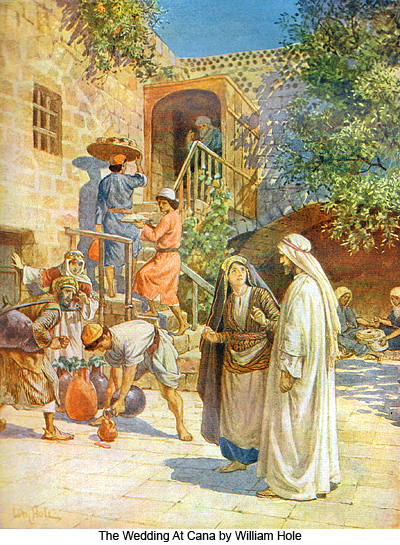"Each act that the soul does in the Divine Will encloses Jesus, Who remains multiplied in it as in the Sacramental Host". Luisa Piccarreta.[Below]
+++++++++++++++++++++++
COMMENT: Mystics. I would like to check with the Italian translation of this extract...
Divine Will Readings from January
http://bookofheaven.org/divine-will-monthly-readings/the-calendar-november/
The Calendar
Each day of the month of JANUARY - Volume 1-36
from the writings of the Servant of God Luisa Piccarreta
1/1/20 – Vol. 12
Each act that the soul does in the Divine Will encloses Jesus, Who remains multiplied in it as in the Sacramental Host.
Continuing in my usual state, my always lovable Jesus seemed to come out from my interior; and as I looked at Him, I saw Him all wet with tears - even His garments, His Most Holy hands were beaded with tears... What torment! I was shaken, and Jesus told me: "My daughter, how wrecked will the world be! The scourges will flow more painfully than before, to the extent that I do nothing but cry over its sad lot!"
Then He added: "My daughter, my Will is wheel, and whoever enters into It remains entrapped within, to the point of not being able to find a way out; and everything she does remains fixed on the eternal point, and pours into the wheel of Eternity. But do you know what are the garments of the soul who lives in my Will?
They are not of gold, but of most pure Light. This garment of Light will serve as mirror to show all of Heaven how many acts she has done in my Will – because, in each act she has done in my Will, she enclosed Me completely. This garment will be adorned with many mirrors, and in each mirror all of Myself will appear. Therefore, from whatever side they will look at her - from behind, from the front, from the right, from the left - they will see Me, multiplied for as many acts as she did in my Volition. I could not give her a more beautiful garment: it will be the exclusive distinction of the souls who live in my Will."
I remained a little confused in hearing this, and He added: "How is it - do you doubt? Doesn’t the same happen in the Sacramental Hosts? If there are one thousand Hosts, there are one thousand Jesuses, and I communicate my whole self to a thousand; if there are one hundred Hosts, there are one hundred Jesuses, and I can give Myself only to a hundred. In the same way, the soul encloses Me within each act done in my Will, and I remain sealed inside the will of the soul. Therefore, these acts done in my Will are eternal Communions, the species not subject to being consumed as in the Sacramental Hosts. As those species are consumed, my Sacramental Life ends; on the other hand, in the Hosts of my Will there is no flour, or any other matter - the food, the substance of these Hosts of my Will, is my eternal Will Itself, united with the will of the soul, which is eternal with Me; and therefore these two wills are not subject to being consumed. So, what is the wonder, if the whole of my 2 Person will be seen as multiplied for as many acts as she has done in my Will? More so, since I remained sealed in her and she, as many times, in Me. Therefore, the soul too will remain multiplied in Me for as many acts as she has done in my Will. These are the prodigies of my Will - and this is enough to cast any doubt away from you."
++++++++++++++++



.jpg)






